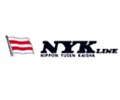Industry’s preparations for IMO 2020 rule shows ‘significant progress’ – ExxonMobil

With less than nine months to go before the International Maritime Organization’s global sulfur limit rule for marine fuels kicks in, the industry is making ‘significant progress’ to prepare for it, ExxonMobil’s marine fuels venture manager Luca Volta said recently.
“All stakeholders including suppliers, traders, consumers, port authorities, flag states, regulators, who have a vested interest in the shipping value chain, need to work towards the same objective. Over the last few months, we have worked with some of them very closely,” Volta told S&P Global Platts in an interview.
On the supply side, there have been a number of announcements from both international as well as state oil companies about the availability of 0.50% sulfur compliant bunker fuels, Volta said, adding that this has quelled some concerns over their supply.
Some ports are also offering more clarity to shipowners about the availability of the different types of fuels as 2020 heralds a multi-fuel future, where VLSFO, MGO, ULSFO, distillates, residual fuels with abatement technology, and alternatives such as LNG are all going to play a part to ensure compliance with the 2020 rule, Volta said.
The Maritime and Port Authority of Singapore, for example, in April released a list of licensed bunker suppliers providing compliant fuels in the Port of Singapore, the world’s largest bunkering port.
This comes after the MPA and the Singapore Shipping Association released last year two technical guides for Singapore-registered ships and ships calling at the Port of Singapore to ready them for IMO 2020.
Other major ports such as Rotterdam and Amsterdam are also fairly well advanced to ensure implementation, while flag states globally are also gearing up for the rule as there are considerable reputational risks involved with non-compliance.
Meanwhile, shipowners also want a consistent level of implementation as “you don’t want to play under a different set of rules,” he added.
“One must understand that we are moving from a world of fuel procurement to one of fuel management,” Volta said.
Shipowners have to make a strategic marine fuel choice by considering the age of their vessels, trading routes, locational availability of such fuels and manage them after bunkering, while paying heed to facets such as how many receiving tanks does the vessel have and the kind of tank segregation required, Volta said.
A growing number of shipowners and operators are already developing ship implementation plans, which will mitigate risks and help with compliance, he said.
Those opting for scrubbers should familiarize themselves well with the technology and have a discussion with its manufacturers to make sure it can scrub to the level they require, Volta said.
Also, there is a difference between fuel oil availability and bunker fuel availability. “Fuel oil may be available, but it is always prudent for shipowners to ensure they have the fuel they need at the time they require through dedicated logistics,” Volta added.
EXXONMOBIL READY FOR 2020
“We’ve spent a lot of time, research and investments to ensure our 2020 compliant fuels do what they are supposed to do,” Volta said.
“There is a lot of misunderstanding in the industry. It is important to remember that sulfur compliance should not come at the expense of fuel quality,” Volta said.
ExxonMobil is already preparing its refineries worldwide as IMO 2020 inches ever closer, Volta said.
In April, the company said it had made a final investment decision to expand the Fawley refinery in the United Kingdom to increase production of ultra-low sulfur diesel by almost 45%, or 38,000 barrels/day, along with logistics improvements.
It is also preparing for a multi-billion dollar expansion at its integrated manufacturing facility in Singapore to produce higher-value products and expand its lubricant base stocks production to meet growing demand, he said.
Last year, ExxonMobil also announced specifications relating to its IMO compliant 0.50% sulfur bunker fuels and their availability at various locations worldwide.
“All our 0.50% sulfur compliant bunker fuels are going to be aligned to ISO 8217:2017 specs,” Volta said, adding that the fuels will be compatible with each other, provided best practice guidance for bunkering, handling and storage is followed.
ExxonMobil has also developed a range of lubricants to complement the compliant fuel of choice in 2020, Volta said.
Its Mobil Serv Cylinder Condition Monitoring can also help vessel operators ensure IMO compliance by measuring the sulfur content of marine fuel throughout the fueling system and as it enters the engine, he said.
Meanwhile, ExxonMobil’s technical team is also working closely with its customers to prepare for 2020, Volta added.
Source: Platts

 Hellenic Shipping News Worldwide Hellenic Shipping News Worldwide, Online Daily Newspaper on Hellenic and International Shipping
Hellenic Shipping News Worldwide Hellenic Shipping News Worldwide, Online Daily Newspaper on Hellenic and International Shipping






















 PG-Software
PG-Software